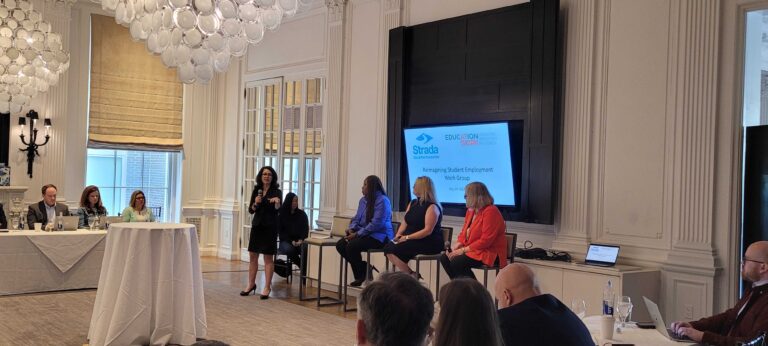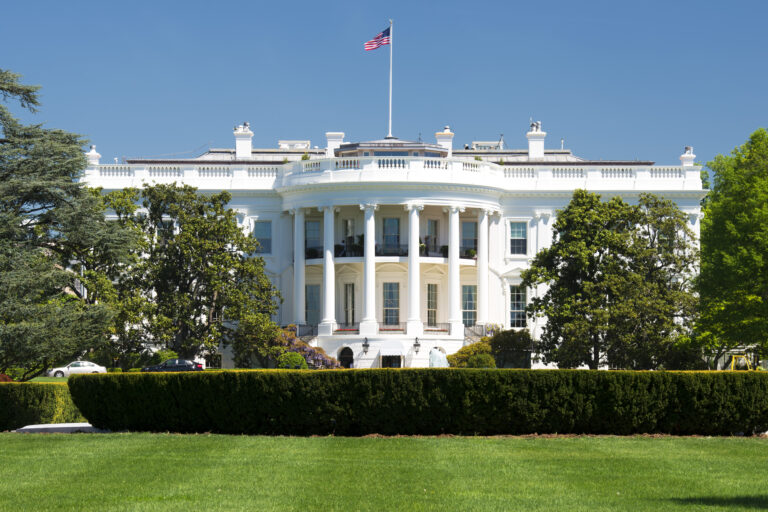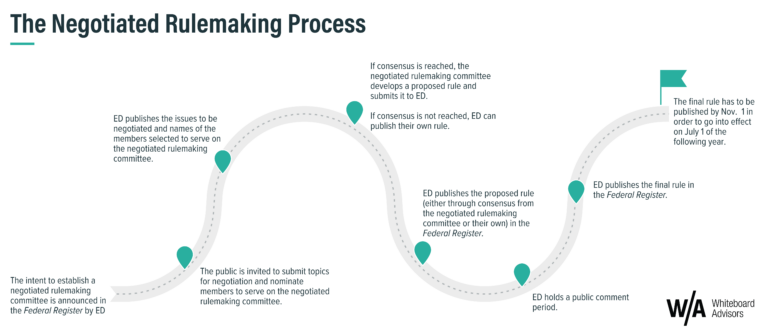ICYMI: On May 10, the U.S. The Department of Education issued a highly anticipated Dear Colleague letter on the Federal Work Study Program, which allocates annually more than $1 billion in campus-based aid for students enrolled in higher education. Here’s what the Department is up to and why it matters:
Catch Up Fast: Designed to address challenges exacerbated during the COVID-19 pandemic, the letter encourages colleges, universities, and school districts to use Federal Work Study (FWS) and other federal resources to increase support for school-aged children and youth by employing college students as tutors, mentors, and student success coaches.
Why It Matters: The new federal guidance reflects growing interest among policymakers in how to boost employment outcomes, particularly for low-income students, students of color, English learners, and students with disabilities. In an interesting twist, the new guidance could offer a “double whammy” of impact by deploying college students to provide academic support to underserved K-12 learners in their communities.
Go Deeper: The proposed changes to FWS are just one example of renewed interest among policymakers and experts in rethinking the connection between education and employment. As the U.S. Department of Education mulls changes to the FWS program, Whiteboard Advisors teamed up last week with the Strada Education Foundation and nonprofit Education at Work, for a convening with business leaders, higher education experts, and academic leaders with the goal of reimagining student employment. A few key takeaways that we heard:
- The Big Idea: From Affordability to Career Outcomes. The idea of reframing student employment, from a basic necessity of affording college to an opportunity for driving economic mobility and talent advancement, was widely embraced by event participants.
- Integrating Learning with Work. Among the topics discussed at the event was the value of work—both in economic and career readiness terms—for students. Dr. Sharon Smith, vice president of education outreach at Arizona State University, highlighted examples of how the university is working to offer paid internships or jobs related to their field of study through their engagement with Education at Work, which connects students with paid employment opportunities with Fortune 500 Companies and helps offset the cost of college through tuition subsidies.
- The Internship Divide: Nichole Torpey-Saboe from Strada Research shared insights from a recent study leveraging data from the National Survey on Student Engagement. The research found significant gaps persist in students’ access to paid internships and other work-based learning experiences. First-generation students, along with Black, Latinx, and female students are less likely to engage in paid internships or internships in the highest-paying fields of study.




